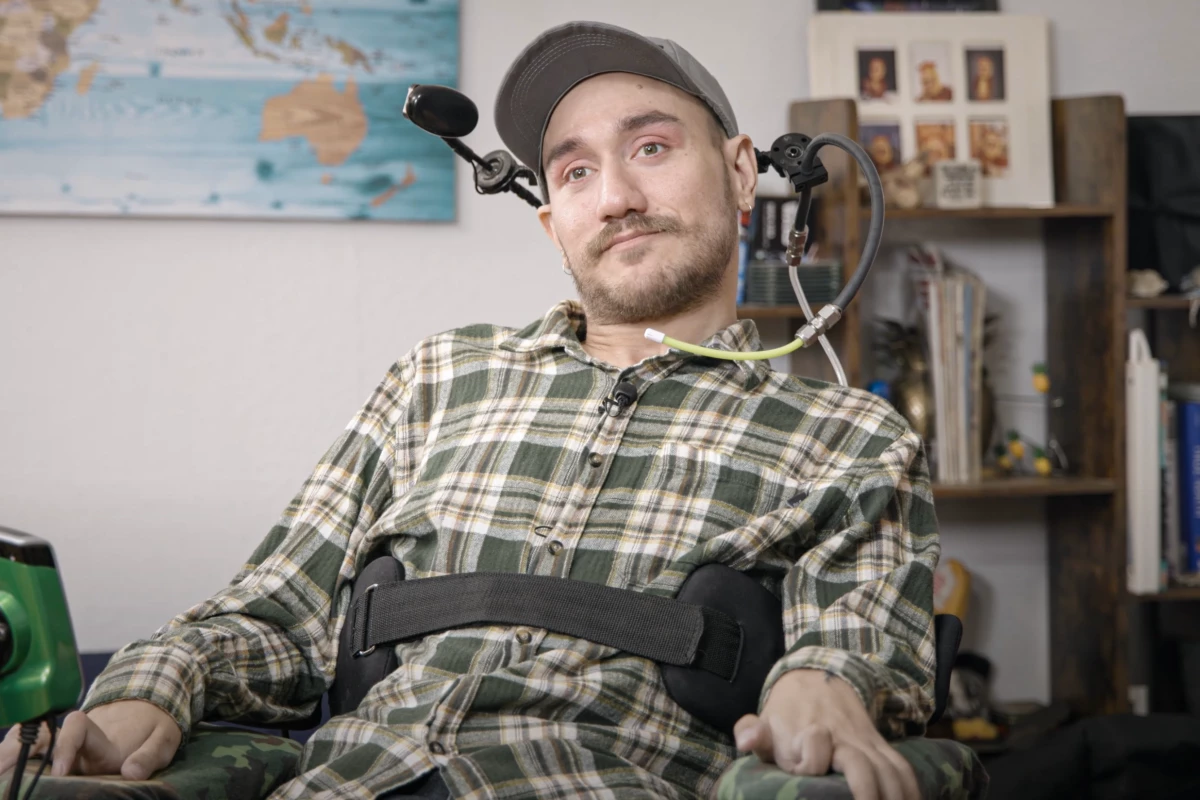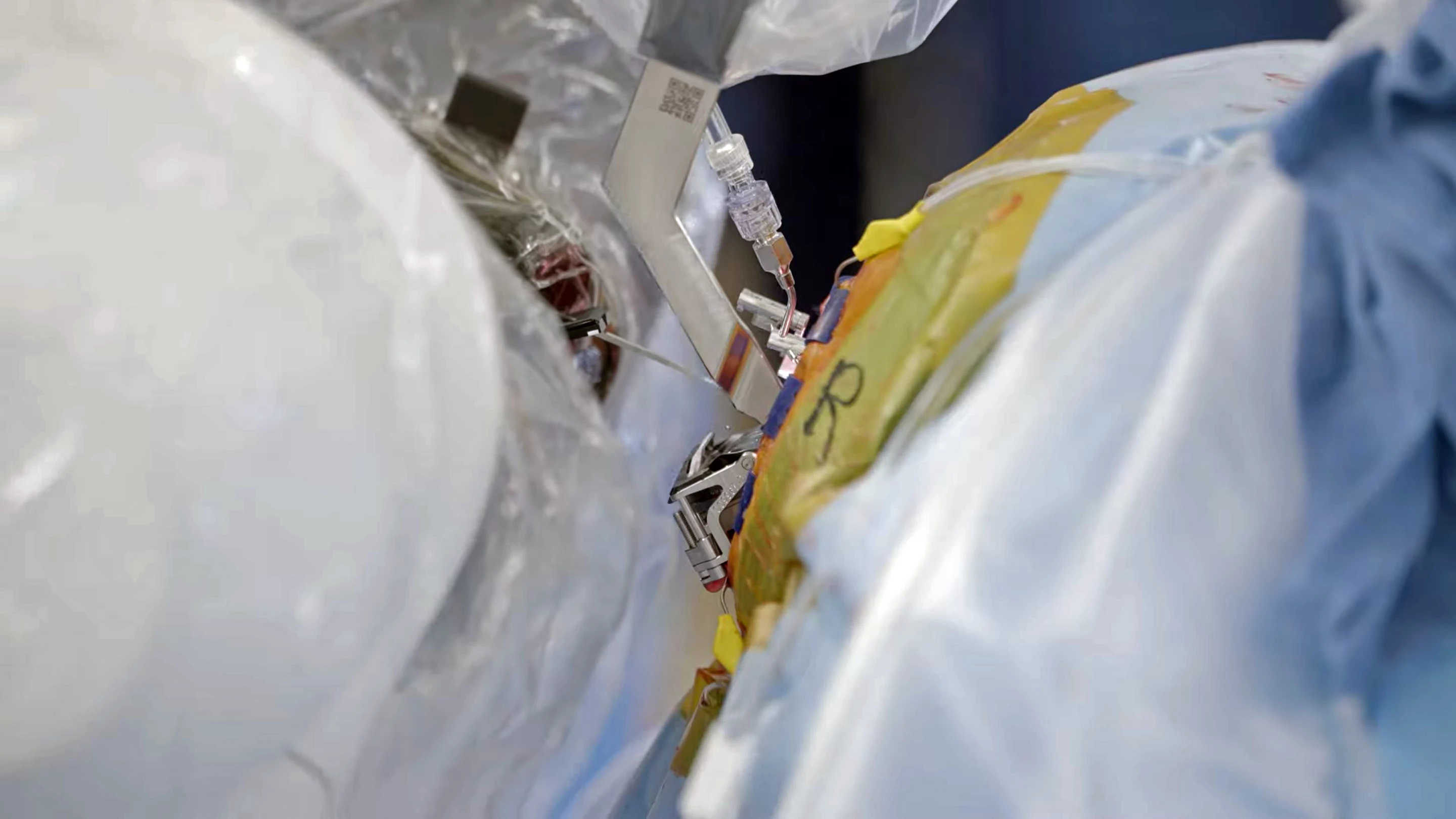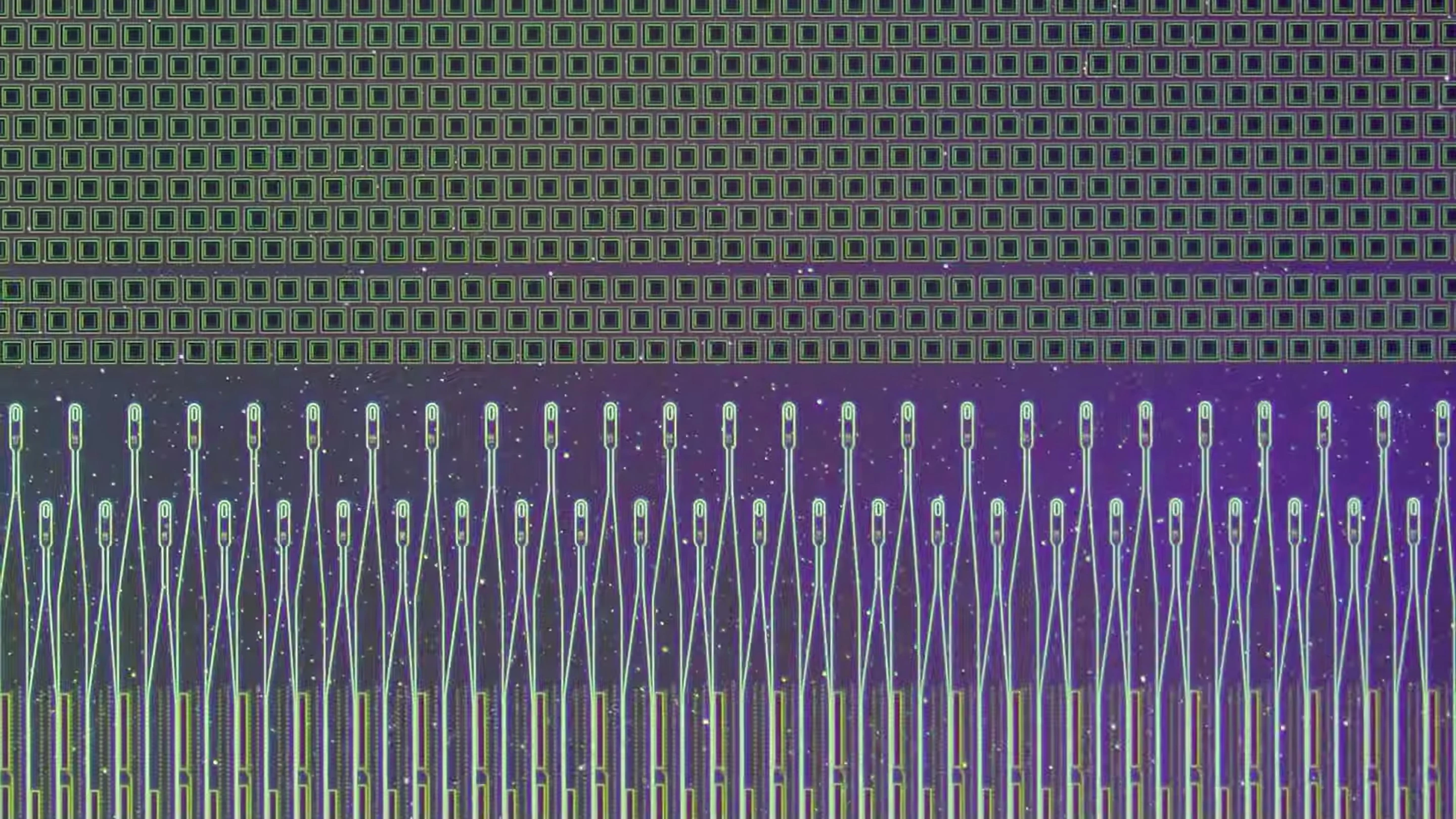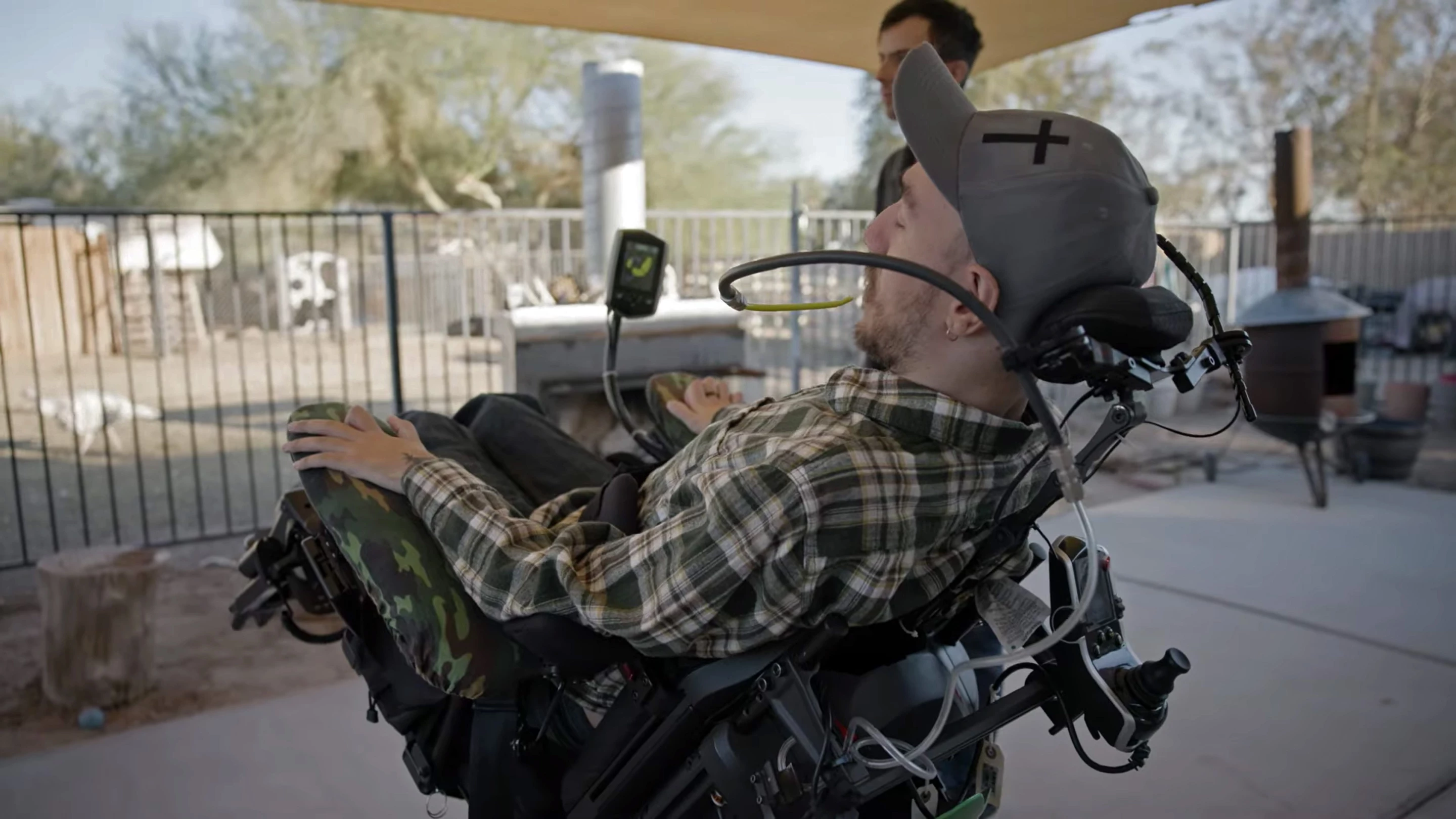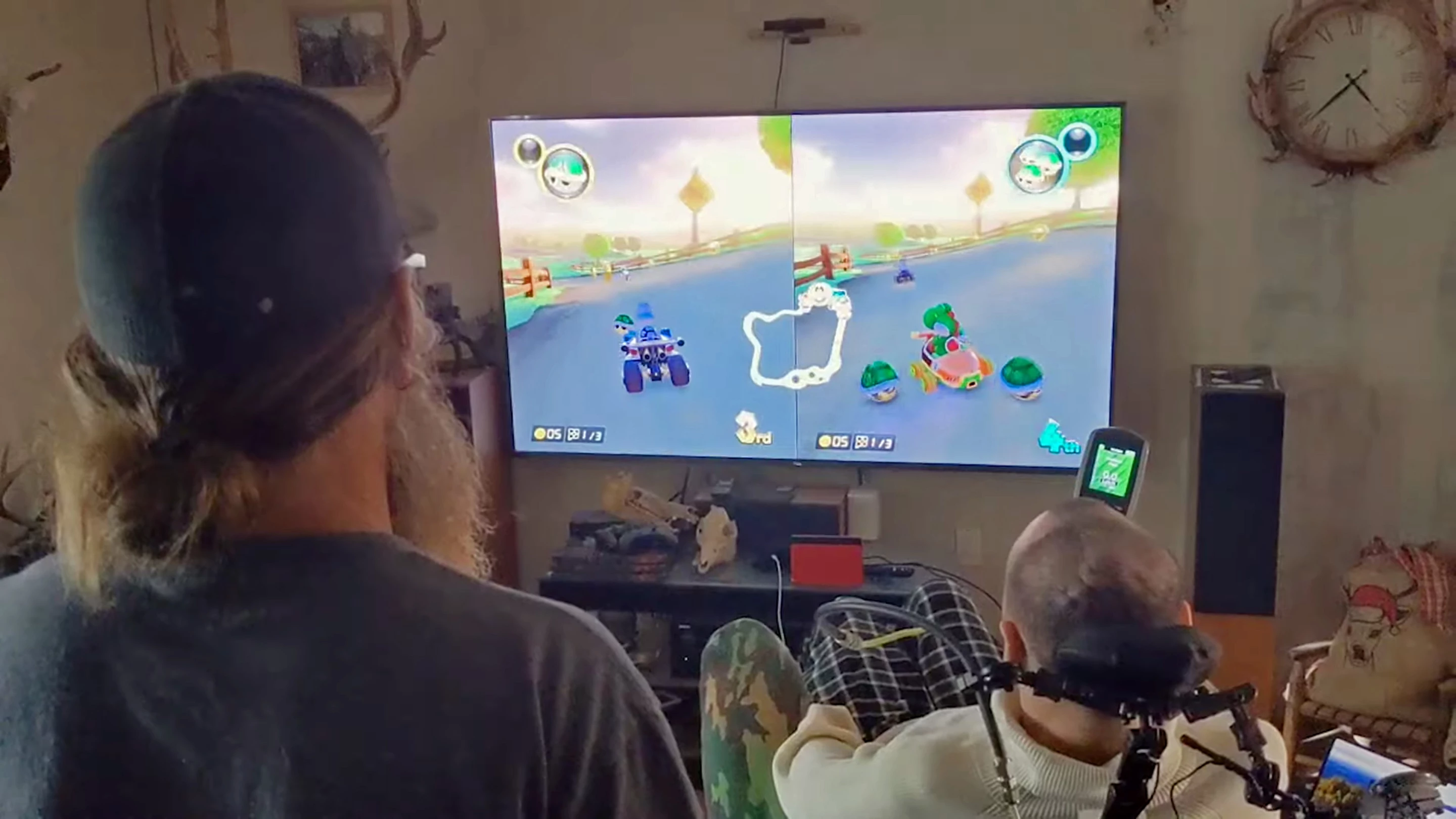Noland Arbaugh was in a swimming accident in 2016 that left him a quadriplegic. In January of this year, he became the first person to receive Elon Musk's Neuralink brain implant called the Link that would eventually allow him to have telekinetic powers.
"I didn’t have anything to wake up for in the morning, and this has changed that for me," Arbaugh said in a Good Morning America interview. With the implant, Arbaugh is able to have nearly full control over his computer simply by thinking. Before, he was relegated to tapping his screen with a stylus between his teeth. He says his newfound mind-control ability has completely changed his life for the better.
The Link implant is about the size of a large coin and has 1,024 electrodes on 64 leads, or "threads," that are connected to various parts of the brain that control motor functions. These threads are around 4 micrometers thick (0.00016 inches) and about 20 mm (0.79 in) long; smaller than a human hair. Because of the tiny intricacies, absolute precision is needed when placing the implant. Neuralink developed a special proprietary robot called the R1 to perform the micro-procedure. The needle tips used by the R1 to implant these threads are barely larger than a red blood cell so as to minimize damage to brain tissue during the Deus Ex-like hardware install.
Arbaugh's procedure went seemingly without a hitch. He was released from the hospital the very next day and had no ill side effects. Within a month, he'd learned to control the mouse cursor on his computer via Bluetooth using his thoughts.
The implant itself was embedded just under his scalp, making it relatively invisible. It uses induction charging and the battery is said to last right around eight hours before needing to be recharged. Arbaugh plays games like Chess, Mario Kart, and Civilization VI, the latter of which he's played overnighters until his battery drains completely flat – all with literal telekinesis.
More recently, some of the threads in Noland's implant have begun to fail by retracting from his brain tissue. The issue resulted in a "reduction in bits-per-second (BPS)", meaning how fast Arbaugh is able to control his computer with his mind. Neuralink hasn't disclosed exactly how many threads have retracted, but they were able to mitigate the data-loss issues from fewer available threads and even enhance the Link implant beyond its original specifications by reworking its algorithm.
"In the weeks following the surgery, a number of threads retracted from the brain, resulting in a net decrease in the number of effective electrodes," Neuralink said in a blog post. "This led to a reduction in BPS. In response to this change, we modified the recording algorithm to be more sensitive to neural population signals, improved the techniques to translate these signals into cursor movements, and enhanced the user interface. These refinements produced a rapid and sustained improvement in BPS, that has now superseded Noland’s initial performance."
They believe it's possible the threads retracted due to a condition called pneumocephalus, where air is trapped inside the skull after surgery, causing some of the threads to disconnect. Neuralink considered removing the implant entirely prior to making changes to the sensitivity of the electrodes and and achieving greater BPS.
Facing the the initial news that his implant may be removed, Arbaugh was very emotional saying, "it was very, very hard to give up all of the amazing things that I was able to do. I think I had cried afterwards." He went on to say "[The Link] has helped me reconnect with the world, my friends, and my family. It's given me the ability to do things on my own again without needing my family at all hours of the day and night."
Arbaugh is doing well and in good spirits and very thankful after the updates to the algorithm gave him back his superpowers. There are no safety concerns for his health and well-being even though some threads remain displaced.
Now Elon is looking for a second human patient for clinical trials. To qualify, you must have quadriplegia or ALS. Prospective patients can register at Neuralink's website.
Neuralink is accepting applications for the second participant.
— Elon Musk (@elonmusk) May 17, 2024
This is our Telepathy cybernetic brain implant that allows you to control your phone and computer just by thinking.
No one better than Noland (@ModdedQuad) himself to tell you about the first! https://t.co/k9DaZ3xr5g
Musk and Neuralink are hoping future iterations and hardware eventually go beyond Jedi-like mind-control over cursors and keyboards and are aiming to electronically restore movement in a person with spinal cord damage.
Neuralink hasn't been without controversy with over a dozen monkey deaths during initial trials. While Elon has maintained that only terminally ill monkeys were tested on, there have been reports from Neuralink employees that contradict Musk's claims.
All we know is that the FDA has green-lit human testing and this could be one small step for a quadriplegic ... or even a giant leap for a quadriplegic in the coming years.
